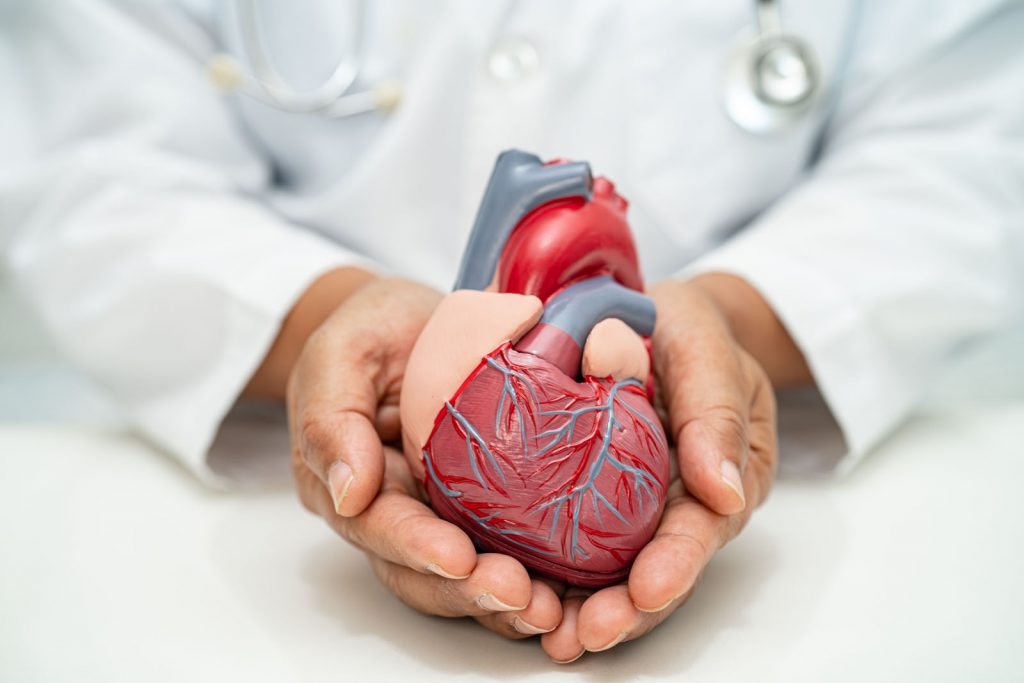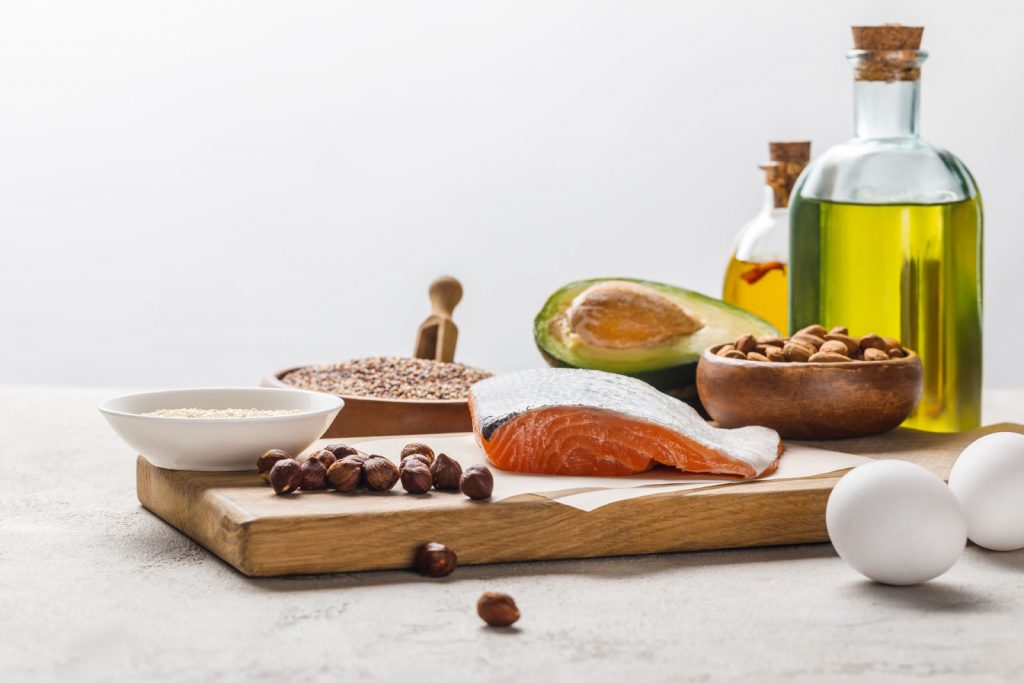Dive into the world of good fats for heart health on our blog. Discover the benefits of incorporating healthy fats into your diet.
Healthy Fats- What Are Good Fats for Heart Health?
Key Highlights
- Heart disease is a major health issue for men – 40% more men die from heart disease than women in Australia each year.
- Cholesterol and fat are misunderstood. – The conventional wisdom on dietary fat, LDL, and heart disease risk has evolved.
- Not all LDL is “bad” – Size matters! Smaller, denser LDL particles pose a greater risk than larger, lighter ones.
- Inflammation and oxidation matter – It’s not just cholesterol levels, but how oxidation and inflammation contribute to plaque buildup.
- Saturated fats may not be the enemy – New research challenges the long-held belief that saturated fats cause heart disease.
- Artificial trans fats are dangerous – Unlike natural trans fats, industrial trans fats significantly increase heart disease risk.
- The best cooking oils for heart health – Extra virgin olive oil, coconut oil, and certain high-quality animal fats are better choices than highly processed vegetable oils.
Introduction
Heart disease is a big health issue around the western world. 40% more men die from heart disease, in comparison to women in Australia every year. Genes do matter, but lifestyle changes are just as important! One key area of discussion with my cardiac patients is their fat and cholesterol intake. Research and health information has changed a lot over time, which makes it very confusing for men who are trying to improve their heart health.
What is Bad Cholesterol? Conventional Views
For many years, health experts believed that eating saturated fats raised total cholesterol levels, especially LDL cholesterol, which is often called “bad cholesterol“.
However, new research now shows that the relationship between dietary fats, cholesterol, and heart health is more complicated than we thought! Let’s break it down.

LDL and Heart Health: Do We Need to Reduce Bad Cholesterol?
The old belief that LDL cholesterol is “bad” has changed. New studies show that we need to look closer at LDL particles too.
LDL particles come in different sizes. Research indicates that smaller, denser LDL particles cause more plaque or atherosclerosis in the arteries than larger, lighter ones. This qualitative assessment changes how we see LDL in relation to heart disease risk. You can read more about LDL-particles and specialised diagnostic techniques I use in my clinic here.
Now, instead of just trying to reduce saturated fat intake and lower levels of LDL cholesterol levels, we need to consider LDL particle size, and how many LDL particles a person has. This new view moves the talk beyond just labeling LDL as “good” or “bad.”
Healthy Fats: According to Conventional Medicine
In the 1970’s, standard medical advice was to warn people to avoid dietary fat. High-fat diets were thought to raise blood cholesterol and increase heart disease risk. Because of this, many began to follow low-fat diets. People began limiting foods high in saturated fat, such as fatty meats and full-fat dairy products.
There were fears that dietary cholesterol, which comes from animal products like eggs and shellfish, could raise blood cholesterol directly. So, people were told to cut back on dietary cholesterol to help manage their cholesterol levels.
An interesting correlaton- from this point in time, diabetes became a prevalent health condition, and national obesity rates rose as low-fat processed carbohydrates started to make up a larger portion of peoples calorie intake.
However, newer research and strong evidence now shows that dietary cholesterol does not affect blood cholesterol levels as much as was once thought (for most people). This change in understanding has led to a new look at how dietary fat and cholesterol affect heart health. You can read my myth-busting article about cholesterol and eggs here.
Old Theories of Arterial Deposits
Cholesterol is known to play a role in atherosclerosis. But as we have just discussed, saying that high blood cholesterol levels cause this problem is too far simple. New studies show that it is actually the process which occurs between cholesterol, inflammation, and oxidation that contributes to plaque formation. Fats oxidise- just like the walnuts in your pantry do!
Beyond Cholesterol Levels- The Role of Inflammation and Oxidation

How Can I Prevent Heart Disease?
Because of this new understanding, the focus of treatment for dyslipidemia must shift. Now, we need to consider more than just cholesterol levels. We need to consider the main factors contributing to oxidation and inflammation in order to prevent and manage cardiovascular disease.
Lifestyle choices, especially diet, play a big part in managing inflammation and oxidative stress. Diets high in refined carbs, sugary drinks, and unhealthy fats can cause more inflammation in the body, raising the risk of cardiovascular disease.
On the other hand, eating plenty of antioxidants from fruits, vegetables, and other whole foods (particularly those high in soluble fibre such as oats) can help reduce cholesterol, fight oxidation and decrease inflammation.
What Are The Good Fats?
Dietary fats are not all the same. They can be divided into 3 main groups: saturated, unsaturated (which includes monounsaturated and polyunsaturated), and trans fats. Each type of fat has its own structure and

The Types of Fats: Saturated, Unsaturated & Trans Fats
Fats are categorised as saturated, unsaturated or trans fats based on chemical structure.
Saturated fats are mainly in animal products, and in some oils like coconut. They are usually solid at room temperature and do not have double bonds in their fatty acid chains.
Unsaturated fats are found in plant and seed oils, nuts and seeds, and also in fatty fish. They normally stay liquid at room temperature, and have one or more double bonds in their fatty acid chains. This group splits into:
Monounsaturated fats: One double bond in their fatty acid chain, and are found in olive oil and avocados.
Polyunsaturated fats: Multiple double bonds in their fatty acid chains. Often found in vegetable oils, sunflower, canola, soybean oil, corn oil, and fatty fish.
Trans fats are usually created through a process called hydrogenation. This process changes unsaturated fats to be more solid, which helps increase the shelf life of processed foods.
Saturated Fats and Heart Disease: Reassessing the Evidence
The long-held belief that saturated fats cause heart disease is being questioned by new research. A meta analysis of close to 350,000 participants found no association between saturated fat intake and heart disease.
This has started a discussion among scientists about the role of saturated fats in heart health. Some experts say that focusing only on cutting saturated fat might ignore other important dietary and lifestyle habits that affect heart disease prevention. For example, including physical activity and weight loss, not having too much alcohol, and eating enough antioxidants and soluble fibre.
This complicated relationship between lifestyle, nutrients and different processes of our body can no longer be simplified by just blaming one nutrient- like saturated fat.
Monounsaturated Fats and Their Benefits for Heart Health
Monounsaturated fats are found in foods like olive oil, avocados, nuts, and seeds. These fats are known for their benefits to heart health. They have one double bond in their chemical structure. This type of fat is an important part of heart-healthy diets, such as the Mediterranean diet.
Research shows that monounsaturated fats can lower LDL cholesterol. At the same time, they can help raise or maintain HDL cholesterol, helping to lower the risk of heart disease.
Polyunsaturated Fats: Essential Fatty Acids and Omega 3's
Polyunsaturated fats have two or more double bonds. They include important fatty acids that our bodies cannot make by themselves. These are linoleic acid (omega-6) and alpha-linolenic acid (omega-3). Omega-3 fatty acids are found a lot in fatty fish and fish oil. They are popular for their benefits for heart health.
Omega-3 fatty acids may help lower triglycerides and blood pressure. They can decrease the risk of blood clots and improve heart health overall. Both omega-3 and omega-6 fatty acids are necessary.
Emerging research shows that the ratios of different fats we eat might be more important for heart health
Are Trans Fats Safe to Eat?
Trans fats can occur naturally (although in very small amounts), and primarily in the fat of animals such as some dairy products and meats. Are naturally occurring trans fats healthy? However, it must be flagged that new research shows naturally occurring trans-fats are not associated with increase risk of heart disease.
The majority of trans fats in the modern world are artificial trans fats, which are created through a process called partial hydrogenation. This can convert liquid vegetable oils into solid fats. Unlike natural trans fats, artificial trans fats pose significant health risks. Trans fats increase levels of LDL while lowering HDL. Trans fats also increase systemic inflammation, which is linked to other chronic conditions such as autoimmune diseases, type 2 diabetes, insulin resistance, and even certain cancers.
Due to these risks, many countries including Denmark, the United States, Canada, and the European Union, have implemented strict bans or heavy regulations on the use of artificial trans fats in food.
Unfortunately, Australia is yet to put an outright ban on trans fats. I don’t believe there is a “safe level” of trans fats to consume. Our government has encouraged the reduction of their use through voluntary industry action and public health campaigns advising the limitation of trans fat intake to safeguard against the associated health risks.

What Are The Best Oils To Cook With?
Many of my patients are confused when it comes to choosing the healthiest oils to cook with. Here are some of the best oils for heart health and why they are beneficial:
Olive Oil: Especially extra virgin olive oil, is widely regarded as one of the healthiest oils for cooking. It is rich in monounsaturated fats, which can help lower LDL (“bad”) cholesterol and reduce the risk of heart disease. Olive oil also contains powerful antioxidants called polyphenols, which help fight inflammation. Use it for low to medium-heat cooking, and as a dressing.
Avocado Oil: Like olive oil, avocado oil is high in monounsaturated fats. Avocado oil has a high smoke point, making it a good option for higher-heat cooking, like frying or sautéing, while still delivering heart-protective benefits.
Coconut Oil: Although coconut oil is high in saturated fat (specifically medium-chain triglycerides or MCTs), newer research suggests that these fats may not be as harmful to heart health as once thought. Unlike trans and long-chain saturated fats found in processed foods, studies show that MCTs in coconut oil can raise HDL (“good”) cholesterol, and lower inflammation, LDL cholesterol and triglycerides. That being said, I always review a patients medical records, and family history before I add coconut oil to their nutritional plan, as everyone responds differently to MCTs. The high smoke point of coconut oil makes it suitable for medium-heat cooking.
Flaxseed Oil: While not suitable for cooking due to its low smoke point, flaxseed oil is an excellent source of alpha-linolenic acid (ALA), a type of omega-3 fatty acid that can help reduce inflammation and lower the risk of heart disease. I recommend it for use in dressings or added as a supplement to smoothies or cold dishes.












